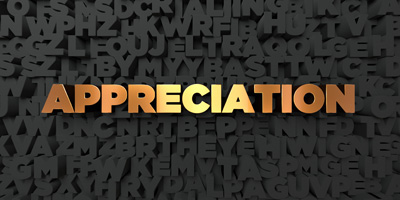 Not being “heard” by a partner is frustrating. No one wants to feel insignificant, invisible, overlooked or taken for granted. The common response when one feels they are not being listened to, is either to fight harder to get their partner’s attention, or retreat or withdraw often leading to depression.
Often a client says they feel they can’t express themselves in the relationship because when they try to talk, their partner becomes defensive meaning they only see and defend their side and their experience, often claiming they are “right”, without even hearing the initial partners complaint.
Therefore, I am sharing with you a fail-proof system of communicating, that eliminates both getting defensive, and eliminates triggering someone else from getting defensive. It is fail-proof when done correctly and I see tremendous changes in couples when we do this in therapy.
Here is information for you to understand and use the process. I would love to hear how it works for you. May you have significant and powerful results. Enjoy!
Not being “heard” by a partner is frustrating. No one wants to feel insignificant, invisible, overlooked or taken for granted. The common response when one feels they are not being listened to, is either to fight harder to get their partner’s attention, or retreat or withdraw often leading to depression.
Often a client says they feel they can’t express themselves in the relationship because when they try to talk, their partner becomes defensive meaning they only see and defend their side and their experience, often claiming they are “right”, without even hearing the initial partners complaint.
Therefore, I am sharing with you a fail-proof system of communicating, that eliminates both getting defensive, and eliminates triggering someone else from getting defensive. It is fail-proof when done correctly and I see tremendous changes in couples when we do this in therapy.
Here is information for you to understand and use the process. I would love to hear how it works for you. May you have significant and powerful results. Enjoy!
Effective communication is essential to a good relationship. Good communication skills may not solve problems or resolve issues, but no problems can be solved, or issues resolved without them. We may communicate well or poorly, but we cannot NOT communicate. One of the most effective forms of communication between persons in a committed love relationship is the INTENTIONAL DIALOGUE. It consists of three processes called mirroring, validation and empathy. Mirroring is the process of accurately reflecting back, the content of a message from one partner. The most common form of mirroring is paraphrasing. A “paraphrase” is a statement in your own words of what the message your partner sent means to you. It indicates that you are willing to transcend your own thoughts and feelings for the moment and attempt to understand your partner from their point of view. Any response made prior to mirroring is often an “interpretation” and may contain a misunderstanding. Mirroring allows your partner to send their message again and permits you to paraphrase until you do understand. Validation is a communication to the sending partner that the information being received and mirrored makes sense. It indicates that you can see the information from your partner’s point of view and can accept that it has validity- It is true for the partner. Validation is a temporary suspension or transcendence of your point of view that allows your partner’s experience to have its own reality. Typical validating phrases are: “I can see that…l”, “It makes sense to me that you would thing that”, “I can understand that …”, Such phrases convey to your partner that their subjective experience is not crazy, that it has it’s own logic, and that it is a valid way of looking at things. To validate your partner’s message does not mean that you agree with his/ her point of view or that it reflects your subjective experience. It merely recognizes the fact that in every situation, no “objective” view is possible. In many communication between two persons, there are always two points of view, and every report of any experience is an “interpretation” which is the “truth” for each person. The process of mirroring and validation affirms the other person and increases trust and closeness. Empathy is the process of reflecting or imagining the feeling the sending partner is experiencing about the event or the situation being reported. This deep level of communication attempts to recognize, reach into and on some level, experience the emotions of the sending partner. Empathy allows both partners to transcend, perhaps for a moment, their separateness and to experience a genuine “meeting.” Such an experience has remarkable healing power. Typical phrases for empathic communication include: “and I can imagine that you must feel…”, and when you experience that, I hear….and that makes sense to me.” A complete dialogue transaction may then sound as follows: “So, I understand you to be saying that if I don’t look at you when you are talking to me, you think that I am interested in what you are saying. I can understand that, it makes sense to me, and I can imagine that you would feel rejected and angry. That must be a terrible feeling.” The reciprocal exchange of this process is the INTENTIONAL DIALOGUE.

 Self-care, it turns out, takes a lot more effort and energy than just getting a mani/pedi, going to a new restaurant or getting a massage. It means truly accepting accountability for your physical, mental, and emotional well-being, and making decisions that support it. Self-care asks us to establish boundaries and practice (at least some) discipline so that we give ourselves the best chance at happiness. It requires us to tune in and get to know our thought patterns, desires, triggers, and fundamental needs so that we can properly anticipate and manage them. Self-care is the very definition of adulting. It puts the ball in our court and empowers us to go get what we need to feel whole instead of expecting anyone else to guess what it is and magically deliver it on a silver platter.
This certainly does not mean we can’t ask for help or that we shouldn’t look for support from people in our lives. It’s only a problem if/when we start believing our own sense of worth, fulfillment, and happiness rests solely on their shoulders. When we expect others to take care of our core needs, we become the victims who need to be rescued and set our relationships up for failure. Solid, healthy, mutually beneficial friendships and marriages are formed when two whole people choose to be together to support and elevate one another… not fix or “complete” each other.
Will Smith does a great job talking about this in this brief
Self-care, it turns out, takes a lot more effort and energy than just getting a mani/pedi, going to a new restaurant or getting a massage. It means truly accepting accountability for your physical, mental, and emotional well-being, and making decisions that support it. Self-care asks us to establish boundaries and practice (at least some) discipline so that we give ourselves the best chance at happiness. It requires us to tune in and get to know our thought patterns, desires, triggers, and fundamental needs so that we can properly anticipate and manage them. Self-care is the very definition of adulting. It puts the ball in our court and empowers us to go get what we need to feel whole instead of expecting anyone else to guess what it is and magically deliver it on a silver platter.
This certainly does not mean we can’t ask for help or that we shouldn’t look for support from people in our lives. It’s only a problem if/when we start believing our own sense of worth, fulfillment, and happiness rests solely on their shoulders. When we expect others to take care of our core needs, we become the victims who need to be rescued and set our relationships up for failure. Solid, healthy, mutually beneficial friendships and marriages are formed when two whole people choose to be together to support and elevate one another… not fix or “complete” each other.
Will Smith does a great job talking about this in this brief  Thought for the day: “A person who feels appreciated, will always do more than expected”
Thought for the day: “A person who feels appreciated, will always do more than expected”